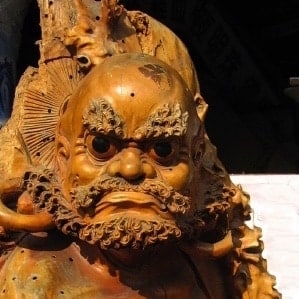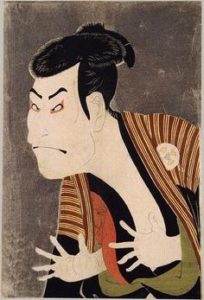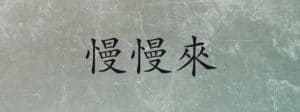What question are you trying to answer?
Not the one that burns, but rather the one that smolders under the ashes and forgetfulness of the painful moments of disruption and disconnection that sow the seeds of a sense of separation.
What question are you trying to answer but reluctant to clearly ask? How do your habits, prejudices, leanings, desires, oft-told stories of transgression and good examples you can’t quite live up to circle around something that acts as a central pivot, and does not want direct attention?
 What question are you trying to answer? The one that will settle once and for all the lingering discontent that has fueled all the pivotal changes that are the luminous points in your life.
What question are you trying to answer? The one that will settle once and for all the lingering discontent that has fueled all the pivotal changes that are the luminous points in your life.
Something is at the core, something like the initial irritation that gives rise to a pearl. Something that can’t be let in, that we guard and defend against. Raise a wall of resistance with our sarcasm, intellect, emotional habits, approved-of distractions and projections of “not-me.” Our fierce and beautiful spirit crystallizes into a stance that allows this avoidance.
What question are you trying to answer?
That one that is reflected in your relationships, career, beliefs, community service, daily practices and avoidances?
What is it that breaks at the edges? Where are you bailing to try to keep from sinking? Who would you be without your central conflict? If you stopped hating someone for transgressions of 40 years ago? If you decided you were good enough and no longer needed approval from someone you love? If you did not need the fire of hatred or cold chasm of fear to fuel your actions in the world?
Do your successes enliven and open a deeper yearning, or are you now treading even deeper water with ever-stronger undertows? Do your failures leave you broken or tenderly open? What if everything you know about yourself is not wrong, but also not quite right?
What if our sense of self always carries the seeds of its own destruction — and that’s not something wrong, but something divinely right? Perhaps being broken is not a persistent state of who we are, but rather a portion of the turn of the wheel that brings renewal, a recalibration of perception that breaks our smaller view with its limited possibilities.
Have you noticed that so often your solutions of the past have turned into the problems of the present?
What if there is no right answer? What if the question, like a mantra or a well-crafted poem, is an invitation to open, inquire and soften? It’s not that the answer is of ultimate importance, but that we can accept the invitation to live with a sense of attentive curiosity in the questions.
The latest show from
Everyday Acupuncture Podcast
Men’s health and Chinese medicine: Treating prostate enlargement and cancer• EAP069
 Most men will have some issues with their prostate as they age. And the vast majority of men will die with some form of prostate cancer, but most will not die from it as the majority of these cancers are slow. Figuring out which kind a person has and how to treat it is one of the emerging questions in men’s health. Especially as the negative sides effects of treatment can have a big impact on quality of life.
Most men will have some issues with their prostate as they age. And the vast majority of men will die with some form of prostate cancer, but most will not die from it as the majority of these cancers are slow. Figuring out which kind a person has and how to treat it is one of the emerging questions in men’s health. Especially as the negative sides effects of treatment can have a big impact on quality of life.
Chinese medicine along with herbs, diet and lifestyle changes can be quite helpful for the issues that arise from prostate enlargement and tissue changes.
Listen in and learn how natural medicine and lifestyle can help men as they face this change that accompanies aging. And why testosterone supplementation does not always result in higher levels of this hormone and how higher levels of testosterone are essential to good prostate health.
Take a Deep Cleansing Breath? NOPE!
A patient asked the other day why I questioned whether she finds herself sighing on a regular basis. It’s a good question!
My answer was that a sigh is the body’s attempt to get a deeper breath, to fully expand the diaphragm and allow for a more complete exchange of oxygen and carbon dioxide. Sighing is an indication of shallow breathing, which often is a sign of stress, anger or anxiety.
Have you even to been in a yoga or mediation class where the first thing the instructor says is, “Take a nice deep, cleansing breath?”
 What was your first reaction? Mine is to punch that instructor in the face!
What was your first reaction? Mine is to punch that instructor in the face!
Yeah, that probably wasn’t what you’d expect your gentle neighborhood acupuncturist to say. But, I’m a surly cur sometimes and really don’t like being told what to do. I’ve noticed that when I forcefully concentrate on my breath with the intention to make it do something, I become more anxious or stressed than not.
Plus, if I’m in a tense situation where a deep, calming breath would be helpful, the rational decision-making ability of my frontal cortex is usually offline, and I’m stuck in some kind of limbic system emotional reaction.
Take a nice deep calming breath at a moment like that? I don’t think so.
I have learned that you can bypass both the executive-thinking function of the brain (which is usually scrambled when you’re in a tense situation) and any resistance you may have toward forcing your breathing.
Just use your physiology to explore the breath! It’s simple, and so long as you have either your right or left hand with you, you can do this.
Simply put one of your hands on your lower abdomen so the thumb is about at the level of the navel. Then take your attention to the kinesthetic feeling of how your breath makes the hand float up a little. It’s more like an invitation, rather than a demand. Doing this puts you in touch, literally, with the quality of your breath in this moment.
It has nothing to do with thinking or making any kind of effort. It is your physiology gently paying attention to itself without the storyline of thought, judgment or effort.
Try it for yourself.
You can begin by telling yourself how you should breathe. Count to six on the inhale, count to eight on the exhale. Pause. Repeat. Relax, dammit! Now simply put one of your hands on the lower belly and tune into your body sensing itself.
You can do this any time you’re stressed. Do this when you want to reach for a sugary treat, argue with your spouse or children, have a run-in at work or get riled up over the latest political brouhaha.
Hand on belly, breath floats the hand. Just that simple.
What else happens when you effortlessly breathe this way? The diaphragm fully expands and contracts. Not only do you get a more complete gaseous exchange in the lungs and more oxygen to your brain, but also all your internal organs get a gentle massage, as the diaphragm is contiguous with the connective tissue that surrounds each organ. This helps with fluid exchange throughout the abdominal cavity and aids digestion as well.
Stressed and agitated? Find yourself sighing? Give this effortless frontal cortex-free method a try.
Or not!
How to Transform Your Relationship with Sugar
If you are a regular reader of the Yong Kang Clinic newsletter, you know that I think sugar is a real metabolic mischief-maker and that part of my practice is helping people reduce the amount of this addictive substance in their lives.
To that end I’ve created and released “The Journey Beyond Sugar,” a 45-day guided inquiry that helps you transform your relationship with sugar.
In this Everyday Acupuncture Podcast episode, I discuss the various health concerns I have about sugar and share the 14 key points that can help you to transform your relationship with sugar.
Listen in and learn about the practices and perspectives that when applied on a daily basis can help you transform into a sugar-free version of yourself!
Be sure to use the code EAP97 at checkout to get the Journey Beyond Sugar for the discounted price of $97.
Yep, for less than the price of your daily sugar fix you can learn to show that sugar demon to the door!
Chinese Lesson: Slowly Slowly Arrive
When I first got to Taiwan years ago, I was in a mad dash to learn some Chinese so I could get to the mainland and really dive into the medicine. That was one of my first mistakes.
For a person as inexpert as I was with languages, a crash course does not mean learning a lot in a short amount of time. Instead, it means crashing and burning through assumptions and breaking enough mental constructs and thought habits so something green and weedy can grow in the empty spaces.
I’d mistaken a colleague’s encouragement that “just 6 to 9 months of Mandarin lessons will get you up to snuff so you can study Chinese medicine in Chinese” for reality. Some things take the turning through seasons to ripen. There are no short cuts, just persistent chewing away at what does not work, so you can find what does.
One of the first phases I learned in Chinese was 慢慢來, man man lai. It literally translates as “slowly, slowly, arrive.” People in Taiwan would say this to me all the time. I didn’t want to hear it. I was in a hurry to get somewhere, and not interested in slow. I wanted to arrive and I wanted to arrive now!
It took some time to understand what “slowly, slowly, arrive” really means. It took endless iterations in countless encounters before I realized it did not mean “be lazy or lackadaisical.” It did not mean “throw cares to the wind.”
Instead, it meant “have your focus and intention, and keep moving in the direction you want to go.” It meant “take your time, and fully inhabit the experience.” It meant “things come in their own time. Be persistent. Enjoy yourself.”
It’s easy in English to think “chill out” means “don’t care so much.” And that was my first mistranslation of man man lai.
But it’s not about not caring. It’s about caring deeply, and not letting yourself get thrown off by an unrealistic timeline that is completely counter to how nature unfolds. Our Internet-addled sensibilities get in the way of inhabiting the cycles of growth, fruition and decline that lay outside the digital realm.
Man man lai teaches that if you doggedly, joyfully, relentlessly move toward where you want to arrive, you will get there. Just don’t expect a straight line, and don’t expect to arrive as the same person who started the journey.
 Knowing other people is intelligence,
Knowing other people is intelligence,
knowing yourself is wisdom.
Overcoming others takes strength,
overcoming yourself takes greatness.
Contentment is wealth.
Boldly pushing forward takes resolution.
Staying put keeps you in position.
To live till you die
is to live long enough.
Dao De Jing
Line 33, Kinds of Power



